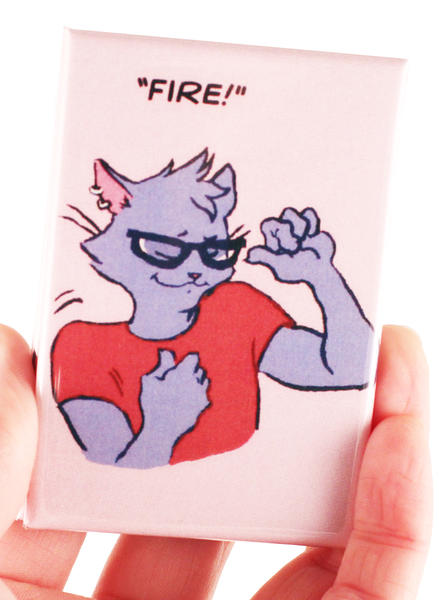What Are Your Greatest Strengths?

Ever since our operations manager Sid told us about the concept of strengths-based leadership, we’ve been a little obsessed. The basic idea is that instead of trying to identify and improve your (or your workers’) weakest points, you instead identify your strengths and work to make the most of them. Then, for example, if your strength is getting things started and your coworker’s strength is seeing things through to the end… well, that means you find ways to work together instead of trying to change yourselves. It’s kinda utopian that way.
The gold standard test for this is called CliftonStrengths. It’s helpful stuff and they have a bunch of books and resources to help you understand your results. For our unscientific purposes, we took a free knock-off online.
Here are results and thoughts from a couple of our workers and interns, about what their strengths mean to them at work:
Sidnee
Top 5 Strengths:
- Believer (An executing type strength)
- Empathizer (A relationship building type strength),
- Coach (An influencing type strength)
- Storyteller (A relationship building type strength)
- Peacekeeper (A relationship building type strength)
I first learned about this concept in my freshman year of college (my results haven’t changed too much) and at that time I did exactly what you’re NOT supposed to do which is notice all the categories I had “no strengths” in. I can be a bit of a black and white thinker. However, one thing I’ve come to love about this system as a manager is that there’s no such thing as someone with zero ability in any specific category, only a person who hasn’t been empowered in a way that makes sense to them based on their strengths.
So for instance- I may not be able to lead Microcosm in grand and innovative directions by way of strategic thinking, but when I notice an intern with a lot of strength in that area, I know to empower them by taking the time to communicate a little extra with them about our processes and coach them on how to best take their ideas and put them into action in our workplace. Furthermore, knowing that someone in our organization is super great at something like “consistency” or “activator” means that if I want to take one of those cool ideas and make sure it gets done, I set them up to turn it into a reality with their executing talents. I’m a big ole nerd about this stuff. I recommend it to everyone.
Micaela
Top 5 strengths:
- Deliverer
- Time Keeper
- Empathizer
- Thinker
- Analyst
I was pleased that my strengths reflected what I value in myself and what I’ve always believed my strong suits to be: organization, dependability, planning, attention to detail and listening to other people. I would have been curious to see what I scored lowest on.
Sam
Top 5 strengths:
- Thinker
- Empathizer
- Coach
- Philomath
- Deliverer
I’m a sucker for any kind of insight into our personalities and ways of being in the form of a quiz. My top 5 makes perfect sense as to who I am, so no surprises there, but it was interesting to dissect further than the surface and see how these all intertwine in various forms of my life, work and personal. There’s always a sense of renewed energy from discovering things about yourself, because it’s like an easter egg, another key or clue into discovering how you operate as an individual and as a team, and how to navigate yourself through the world.
Elly
Top 5 strengths:
- Commander
- Philomath (learner)
- Storyteller
- Catalyst
- Problem solver
Thinking about the results of this test has been extremely useful to me as a manager and a human. None of these strengths surprised me, but seeing them all together this way was helpful perspective—it helped me see myself as something more than the collection of shortcomings I’m constantly (and zestfully, per strengths two and five) problem-solving around.
I was also unsurprised to learn that none of my top five skills are in the relationship-building type. Not that I don’t have social skills, but I sure don’t turn to them first. Yet, I manage other people and much as my natural bossiness comes in handy, relational skills really have to be a part of that for it to go well. So Sid lent me her book about strengths-based management and assigned me the task of going through all my direct reports’ top strengths and figuring out how to lead to those, instead of my previous one-size-fits-all approach. So many revelations!